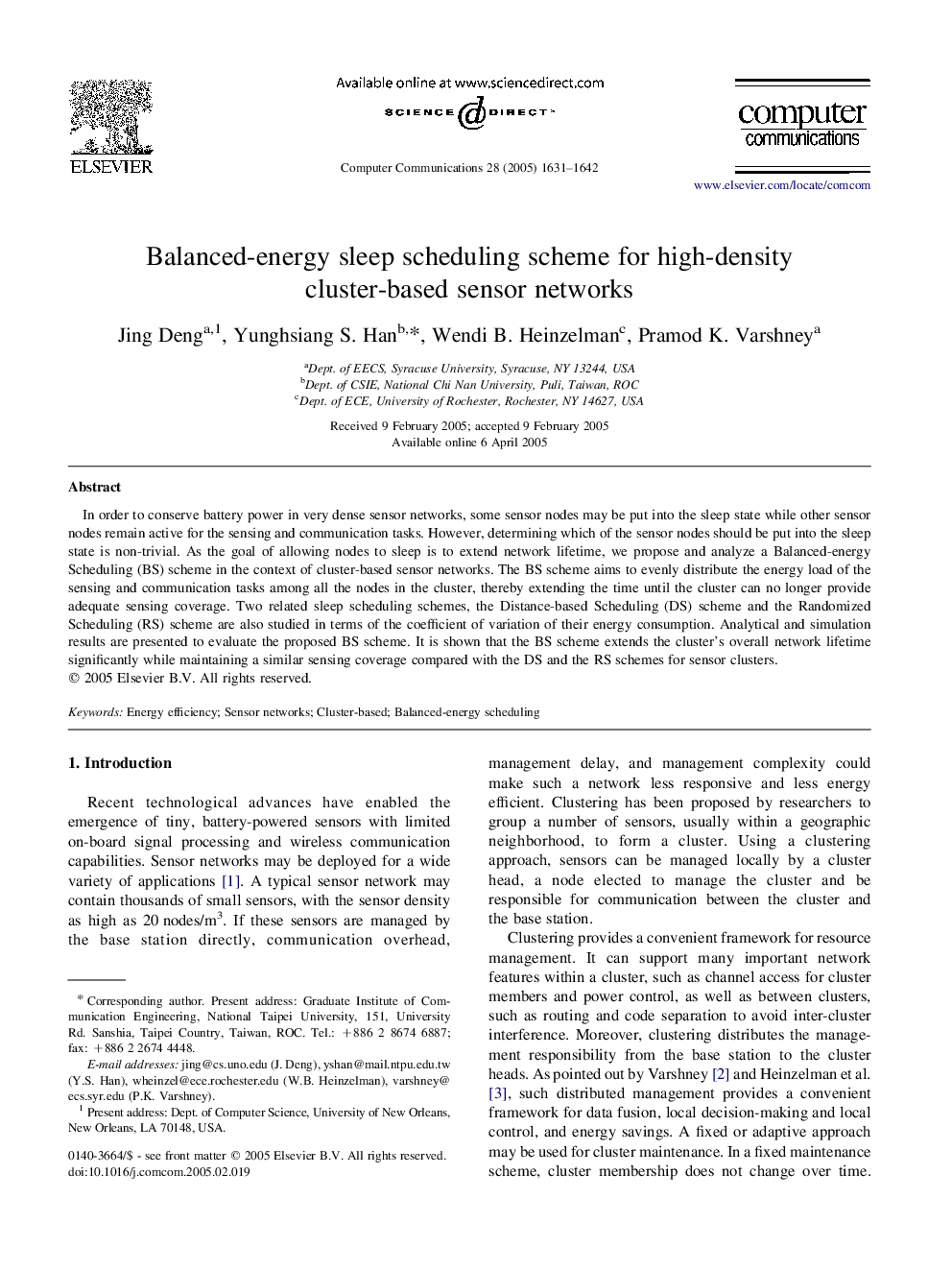| Article ID | Journal | Published Year | Pages | File Type |
|---|---|---|---|---|
| 10338125 | Computer Communications | 2005 | 12 Pages |
Abstract
In order to conserve battery power in very dense sensor networks, some sensor nodes may be put into the sleep state while other sensor nodes remain active for the sensing and communication tasks. However, determining which of the sensor nodes should be put into the sleep state is non-trivial. As the goal of allowing nodes to sleep is to extend network lifetime, we propose and analyze a Balanced-energy Scheduling (BS) scheme in the context of cluster-based sensor networks. The BS scheme aims to evenly distribute the energy load of the sensing and communication tasks among all the nodes in the cluster, thereby extending the time until the cluster can no longer provide adequate sensing coverage. Two related sleep scheduling schemes, the Distance-based Scheduling (DS) scheme and the Randomized Scheduling (RS) scheme are also studied in terms of the coefficient of variation of their energy consumption. Analytical and simulation results are presented to evaluate the proposed BS scheme. It is shown that the BS scheme extends the cluster's overall network lifetime significantly while maintaining a similar sensing coverage compared with the DS and the RS schemes for sensor clusters.
Related Topics
Physical Sciences and Engineering
Computer Science
Computer Networks and Communications
Authors
Jing Deng, Yunghsiang S. Han, Wendi B. Heinzelman, Pramod K. Varshney,
